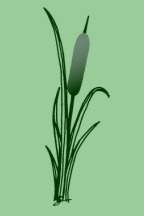
 |
|
Local Interest

|
Water Quality: You Can Make A Difference!
When there are periods of high runoff, due to storms and long rainy periods, the sewer system in inadequate to handle all this flowing water and shunts part of it untreated into Green Lake. All the runoff from Green Lake eventually reaches a wastewater treatment plant before entering Puget Sound. By next year, sewer pipe improvements by METRO will divert the water from Licton Springs around Green Lake into Lake Union. Everything you dump into storm drains has the possibility of ending up in Green Lake or Lake Union eventually.
Dos and Don'ts
The following are some dos and don'ts for taking care of our water and improving water
quality in our area. Do
not allow auto-related pollutants to run off your driveway or street and
enter storm water drains. Recycle crankcase oil and deposit antifreeze
at hazardous waste sites. If
you must use soap when washing your car, then try and drain the water
onto lawns and gardens. Diluted soap will not harm your lawn and plants,
but soap will add to the nutrient level in bodies of water, encouraging
the growth of undesirable aquatic plants including milfoil. Dispose
of paint and related products in the proper manner. Water based paints
can be dried in the can and thrown in the garbage. All oil-based paints,
paint thinners and solvents must be taken to hazardous waste collection
sites or specific transfer stations for proper disposal. Storm drains
are not proper disposal sites.
Remember the adage: We all live downstream. That means if you dump it
downstream onto someone else, then someone else upstream is probably doing
the same thing to you. Be a responsible citizen. If you are unsure what
to do with hazardous wastes, check this King County METRO web site on
hazardous waste for more information. Flood
Control Wetlands
intercept storm water runoff and essentially store the water, discharging
it at a slower rate than would be possible if the wetlands were
not there. This reduces the danger of flooding during peak flows.
Filtration Of Water Filtration is the means by which wetlands (also soil and microbes) remove organic inorganic and toxic materials from the water that flows through them. Healthy wetlands, under favorable conditions, can do much to cleanse surface water before it reaches larger bodies of water.
Welcome
| Local Interest |
Neighborhood in Action |